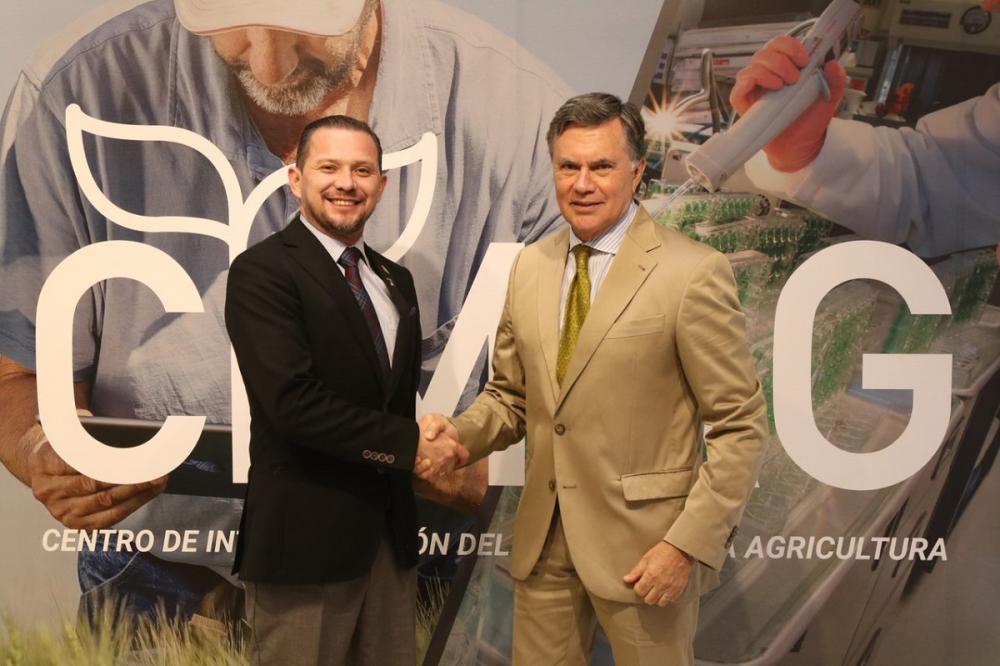Adrián Salazar, head of MICITT, offered his support for the Interpretive Center for Tomorrow’s Agriculture (CIMAG), which was jointly created by IICA and Microsoft to familiarize young people in the Americas with the use of modern technologies in agriculture.

San Jose, 21 February 2020 (IICA). The Minister of Science, Technology and Telecommunications (MICITT) of Costa Rica, Adrián Salazar, supported IICA’s efforts to begin operating the Interpretive Center for Tomorrow’s Agriculture (CIMAG), an educational center aimed at teaching youth about the latest technologies that are transforming agriculture.
Salazar praised the initiative during a recent visit to the Headquarters of the Inter-American Institute for Cooperation on Agriculture (IICA) in San Jose, Costa Rica, where CIMAG is located.
This innovation center, promoted by IICA and Microsoft within the framework of a partnership, highlights the pivotal role of new technologies in the agriculture sector through virtual and interactive experimentation, as well as the use of artificial intelligence, virtual and augmented reality, Internet of Things (IoT) and other resources. It also underscores the impact of these technologies on the well-being of rural families.
“Technology is crucial; therefore, we approve of the efforts that IICA is undertaking through CIMAG. The Institute is heading in the right direction, and our ministry stands ready to support all of its initiatives in this regard,” stated the Minister, who was welcomed by Manuel Otero, Director General of the international organization specializing in agriculture.
Salazar added that the center was created at a crucial moment for the agriculture sector, which, on the one hand, must overcome the challenge of capturing the interest of young people and providing them with opportunities for development in rural areas, and, on the other hand, must adapt to changes in terms of production and market demands.
“It is crucial to provide the agriculture sector with cutting-edge technology so that young people can continue working in the field like their parents did, tilling the land and producing food, but in a modern, digitalized manner that is connected to the world of new information and communication technologies,” stated the head of MICITT.
The Director General of IICA thanked minister Salazar for his support and noted that the Institute hoped to replicate CIMAG in other member countries by creating an online version of the center.
“We hope to convert CIMAG, an initiative aimed at educating youth about the technologies that will modernize agriculture in the Americas, into a hemispheric benchmark that brings together multiple horizontal cooperation actions that foster well-being and a better quality of life for the rural population on our continent,” remarked Otero.
Remarks by Adrián Salazar, Minister of Science, Technology and Telecommunications of Costa Rica (Spanish only).
More information:
Sacha Trelles, Technical Coordinator of the IICA Delegation in Costa Rica.
Emmanuel Picado, Manager of Information/Communication Technologies and Digital Agriculture.











